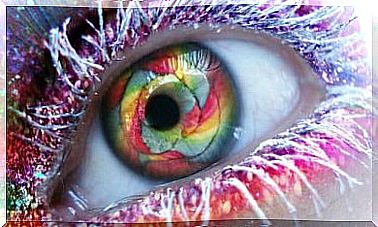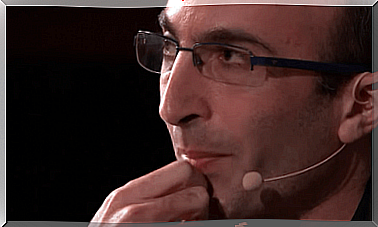How Do You Turn Your Sensitivity Into Your Best Strength?

According to researcher Elaine Aron, around 15 to 20% of the population are highly sensitive people because of the nature of their nervous system.
These people, who generally have a penchant for over-stimulation, emotional responsiveness and empathy, are not always welcomed by society.
The negation of sensitivity is a problem of our time because it is often associated with fragility.
This is why most people suppress their sensitivity, not realizing that well developed and well stimulated, this is an invaluable quality.
Denying your own sensitivity and suppressing negative feelings causes them to persist and turn into unresolved issues.
Being aware of and expressing our own sensitivity allows us to release emotional energy that can be channeled creatively and constructively.
Sensitivity is natural
Sensitivity is the ability to collect sensory information from the nervous system. It is neutral and therefore is neither good nor bad. It’s like a sensitive microphone that collects the most subtle sounds.

The sensitive nervous system can collect people’s emotions, climate, light, sounds, smells and more, and then assimilate the thoughts, feelings, emotions and actions that have formed within it.
Accept emotions
To transform sensitivity into strength, it is necessary to accept yourself and know how to take the reins of our emotions so that they go in our favor and that they do not gallop like unbridled horses.
These reindeer should not be repressed or denied, but released to give rise to emotions, which arise at the right time and in the best possible form.
The repression or avoidance of emotions often gives rise to what are called “meta-emotions”, that is to say emotions on top of emotions, for example, being angry because you are sad. , or feel guilty because you’re excited.
To transform sensitivity into strength, it is necessary to experience emotion as it is and to accept it as such.
Many people accumulate a whole host of conscious or unconscious avoidance behaviors that prevent them from feeling both negative and positive emotions.
Their sensitivity can make them feel the experiences too overwhelming. So, intentionally, they destroy them.
It can be something very simple: for example, turning on the television after work to avoid thinking about the problems of the day, drinking or using substances to lull to sleep stimulating complex social environments.
Here are ways to ignore or intellectualize emotions, an excuse not to have to deal with them. But these are not the only ones.
To counteract this tendency, we must recognize an emotion when it is there, accept it as it is, feel it without judging ourselves and accept the physical reactions it causes in us, to finally let it go.
Sensitivity, passion and creativity
A characteristic that is often linked to passion and creativity.
Sensitive people are often artists, and vice versa, as they are more aware of their emotions and are more able to communicate them through their work.

Unfortunately, education tends to emphasize scientific and business-related skills from an early age, which keeps children away from artistic expression.
The latter is then considered superfluous and as a possible “complement” to other more important questions which require more time.
Yet we all feel a passion for something deep inside, no matter what others think.
Rest and think
Sensitive people often tend to be thoughtful, especially if they spend a lot of time in intense environments that are potentially overwhelming for them.
It is good for them to make time to think, and even to write a diary, in order to have time to bring down the level of saturation due to external stimulation.
Taking a concrete moment to stop and think allows us to be more aware of our situation and of the subtle nuances that have an impact on our daily life, in a constant way, like the drop of water on the rock.








